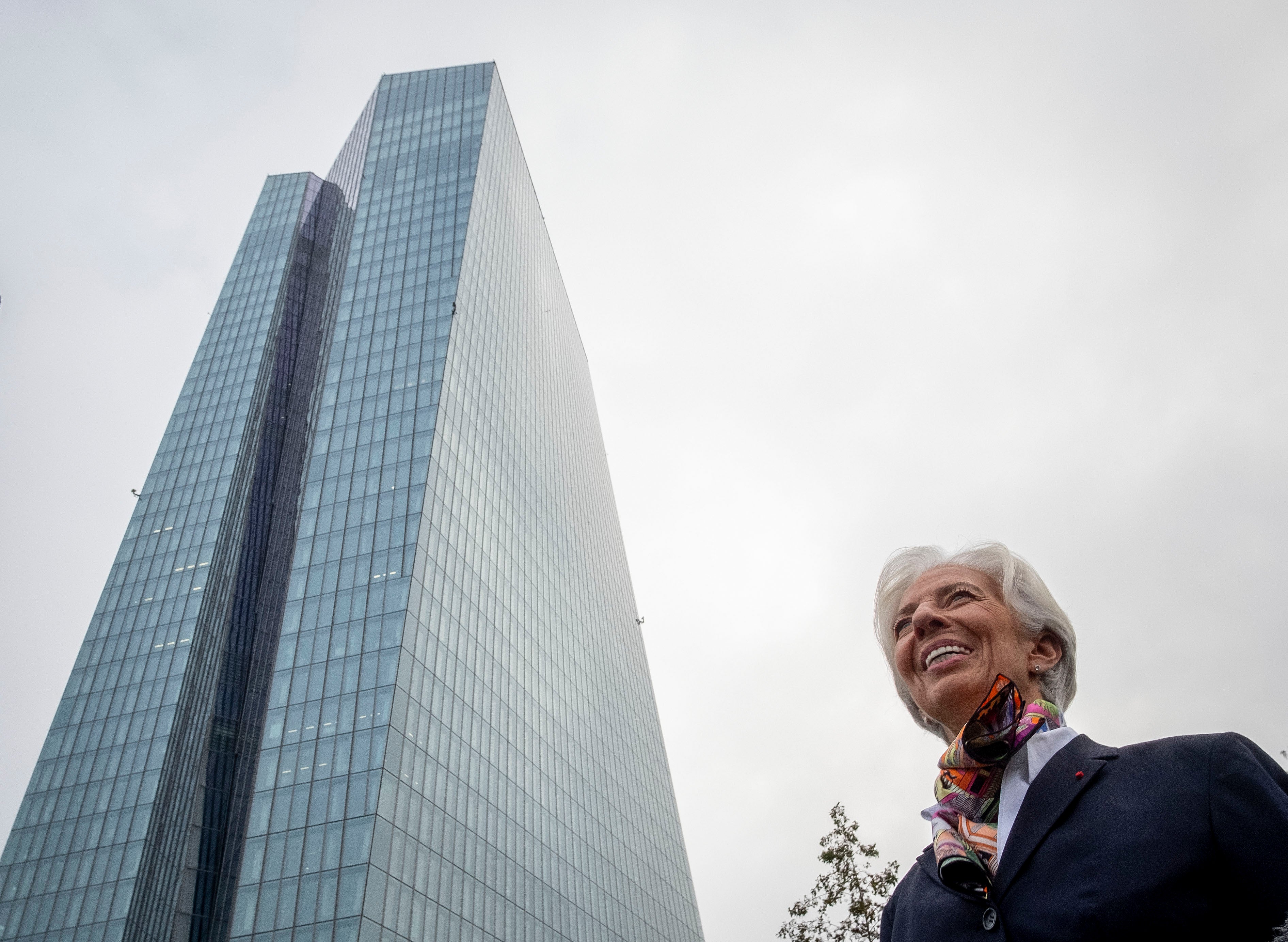Europe's central bank is set to halt rate hikes as the Mideast war casts a shadow over the economy
The European Central Bank is likely taking a break from interest rate increases

Your support helps us to tell the story
From reproductive rights to climate change to Big Tech, The Independent is on the ground when the story is developing. Whether it's investigating the financials of Elon Musk's pro-Trump PAC or producing our latest documentary, 'The A Word', which shines a light on the American women fighting for reproductive rights, we know how important it is to parse out the facts from the messaging.
At such a critical moment in US history, we need reporters on the ground. Your donation allows us to keep sending journalists to speak to both sides of the story.
The Independent is trusted by Americans across the entire political spectrum. And unlike many other quality news outlets, we choose not to lock Americans out of our reporting and analysis with paywalls. We believe quality journalism should be available to everyone, paid for by those who can afford it.
Your support makes all the difference.The European Central Bank is ready to leave interest rates unchanged Thursday for the first time in over a year as the Israel-Hamas war spreads even more gloom over already downbeat prospects for Europe's economy.
It would be the bank's first meeting with no change after a torrid pace of 10 straight increases dating to July 2022 that pushed its key rate to a record-high 4%. The ECB would join the U.S. Federal Reserve, Bank of England and others in holding borrowing costs steady — albeit at the highest levels in years — as inflation has eased.
In Europe, inflation peaked at a painful 10.6% in October for the 20 countries that use the euro currency as Russia's war in Ukraine took a toll. Those high prices have been poison for consumer spending, draining household finances with added costs for necessities such as food, heat and electricity.
But with inflation now down to 4.3%, analysts expect the ECB to hold off on more hikes during its meeting in Athens. It is one of the bank’s regular meetings away from its Frankfurt headquarters, meant to underline its status as a European Union institution.
Now, worries are sharpening about weakening economic growth and even the risk of a recession. Rate hikes are a central bank’s chief weapon against inflation, but they can weigh on economic growth by raising the cost of credit for consumer purchases, particularly homes, and for companies to buy new equipment and facilities.
Surveys of purchasing managers by S&P Global indicate that economic activity fell in October. Analysts at ABN Amro bank foresee a 0.1% drop in economic output in the eurozone for the July-September quarter and minus 0.2% for the last three months of the year. The EU will publish third-quarter figures Tuesday.
Inflation's impact on consumers was a big reason why Europe scraped out only 0.1% growth in the first two quarters of this year. Its biggest economy, Germany, is forecast by the International Monetary Fund to shrink by 0.5% this year, making it the world's worst performing major economy. Even Russia is expected to grow this year, the IMF says.
And there's little prospect of improvement for Europe this year. The war in the Middle East has threatened to raise oil prices, though there hasn't been a massive spike or an interruption in supplies so far. But the conflict adds uncertainty because Europe is heavily dependent on imported energy, which could be affected if the Israel-Hamas war widens to include Iran or its proxy fighters in Arab countries.
“The ECB won’t be in any rush to take further action,” said Carsten Brzeski, global head of macro at ING bank. “Instead, it will use a welcome pause to wait for more data points on the delayed impact of the rate hikes so far and developments in the oil price.”
The emphasis has shifted to how long rates will stay at record highs. ECB President Christine Lagarde has repeated the bank's message that rates have now “reached levels that, maintained for a sufficiently long duration, will make a substantial contribution to the timely return of inflation” to its goal of 2% considered best for the economy.
That was taken as a signal the ECB was finished raising rates, though some analysts aren't ruling out a last rate hike in December if the expected decline in inflation does not materialize.